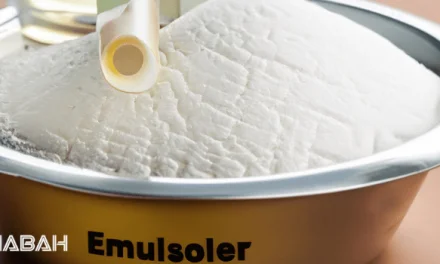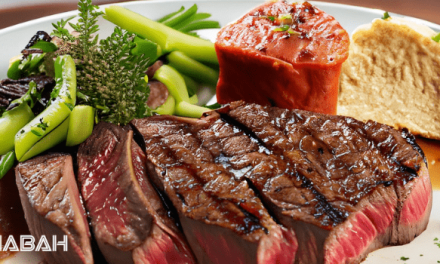Corn dogs – those delicious golden brown snacks of hot dog sausages dipped in cornmeal batter and fried to perfection – are a classic American food item. But for Muslims who follow a halal diet, the halal status of corn dogs may not be immediately clear. In this article, we’ll take a detailed look at the ingredients used in corn dogs and the processes involved in making them in order to determine whether or not they can be considered truly halal.
An Overview of Corn Dogs and Their Questionable Halal Status
Corn dogs are typically made by dipping hot dog sausages into a cornmeal batter and then deep frying them. The batter usually contains ingredients like cornmeal, wheat flour, sugar, salt, baking powder, and sometimes egg. The hot dog sausage itself can be made from pork, beef, chicken, or turkey.
For Muslims who eat only halal meats, corn dogs become questionable because the original hot dog sausages were made with pork, which is haram. Even when made with halal beef or chicken, the method of slaughter and preparation is not always clear. Additionally, other ingredients like flavorings, preservatives, and oils used in processing the corn dog may be derived from non-halal sources.
So can Muslims enjoy corn dogs? Let’s take a deeper look at the ingredients and process involved.
Breaking Down the Ingredients in Halal Corn Dogs
The main ingredients that determine whether a corn dog can be considered halal are the hot dog sausage itself and the cornmeal batter coating.
The Hot Dog Sausage
- The sausage must be made with halal meats like chicken or beef slaughtered in the Islamic method. Pork sausages are haram.
- Even with halal meats, the other ingredients used like seasonings and preservatives must also be halal. For example, many hot dogs contain garlic powder or onion powder which should ideally come from halal sources.
- Some brands may use beef broth or natural flavors whose source is questionable. Always check the label carefully.
The Cornmeal Batter
- The main ingredients like cornmeal, wheat flour, and baking powder are typically halal.
- Shortening or oil used must be halal and not derived from pork sources. Vegetable oil is preferable.
- Other minor ingredients like sugar, salt, and powdered milk must also come from halal sources.
So in summary, both the sausage and coating need to be made with halal ingredients and free of any haram products like pork for the corn dog to be considered truly halal.
How Are Halal Corn Dogs Made?
In addition to halal ingredients, the preparation process also matters when determining if a corn dog can be halal. Here are some key points:
- The beef or chicken used in the sausage must be slaughtered in the Islamic method (zabihah halal). This means reciting tasmiyah and draining the blood.
- Cross-contamination with any non-halal ingredients like pork must be avoided during processing and cooking. Separate fryers are ideal.
- The corn dogs must be cooked in a halal-approved oil. Oils derived from pork fat would be haram.
When made according to proper Islamic guidelines, corn dogs can satisfy the halal dietary restrictions.
Where Can You Find Truly Halal Corn Dogs?
- Check labels carefully and look for brands that state “halal” or “zabihah halal”.
- Purchase halal frozen corn dogs from specialty grocers or halal meat markets.
- Make them at home from scratch using certified halal hot dogs and coating ingredients. Recipes are available online.
- Order halal corn dogs from restaurants/food trucks that serve verified halal food.
- Use halal food apps like Halal Cart, Zabihah Halal to find corn dogs near you or deliver them.
As always with any processed food, your best bet is to contact the manufacturer directly if the halal status seems unclear based on the packaging.
Key Considerations When Choosing Halal Corn Dogs
Here are some important tips to keep in mind:
- Verify all ingredients even in brands marketing as “halal”. Manufacturing can change.
- Check where the product is made. Corn dogs from Muslim-majority countries may be more reliably halal.
- Opt for brands that state “no pork enzymes” or “vegetarian” to avoid cross-contamination.
- Know if the product is certified halal by an approved halal authority. This provides more assurance.
- Consider making your own from scratch at home to control all ingredients.
Conclusion: Enjoy Halal Corn Dogs in Moderation
For Muslims who carefully read labels, source certified halal brands, or make their own, enjoying an occasional halal corn dog is permissible. As with any heavily processed convenience food, moderation is key. The coating and frying adds a lot of extra carbs, fat, and sodium that should be balanced out in your overall diet. But as an occasional treat, halal corn dogs can definitely hit the spot!
Frequently Asked Questions – Halal Corn Dogs
What are Halal Corn dogs?
Halal corn dogs are a popular snack made from a hot dog sausage coated in a batter that is typically made from cornmeal and other ingredients. The term “Halal” refers to food that is permissible according to Islamic dietary laws.
Are all Corn dogs Halal?
No, not all corn dogs are considered Halal. To be considered Halal, corn dogs must be made with Halal-certified ingredients, including the hot dog sausage, batter, and any other ingredients used in the preparation.
What makes Corn dogs Halal?
For corn dogs to be considered Halal, several factors must be taken into account:
- The hot dog sausage used should be prepared according to Islamic dietary laws and sourced from halal-certified suppliers.
- The batter should be made using Halal-certified ingredients, such as corn flour, cornmeal, corn starch, sugar, salt, baking powder, and other permissible ingredients.
- The frying oil used should not contain any non-Halal ingredients and should be free from cross-contamination with non-Halal items.
- The production process should be monitored to ensure no cross-contamination with non-Halal items occurs.
How can I identify Halal Corn dogs?
To identify Halal corn dogs, look for products that have a Halal certification label or ask the restaurant or manufacturer about their Halal certification. It’s always best to check with the appropriate certifying authority.
Can Halal Corn dogs be made with chicken instead of pork?
Yes, Halal corn dogs can be made with chicken instead of pork. In fact, some Halal-certified corn dogs may use chicken or other Halal meats as an alternative to pork-based sausages.
How does the Halal status of a Corn dog depend on the certification of its ingredients?
The Halal status of a corn dog depends on the certification of its ingredients. Each ingredient used in the corn dog, including the hot dog sausage, batter, and other components, needs to be sourced from Halal-certified suppliers and processed according to Islamic dietary laws.





